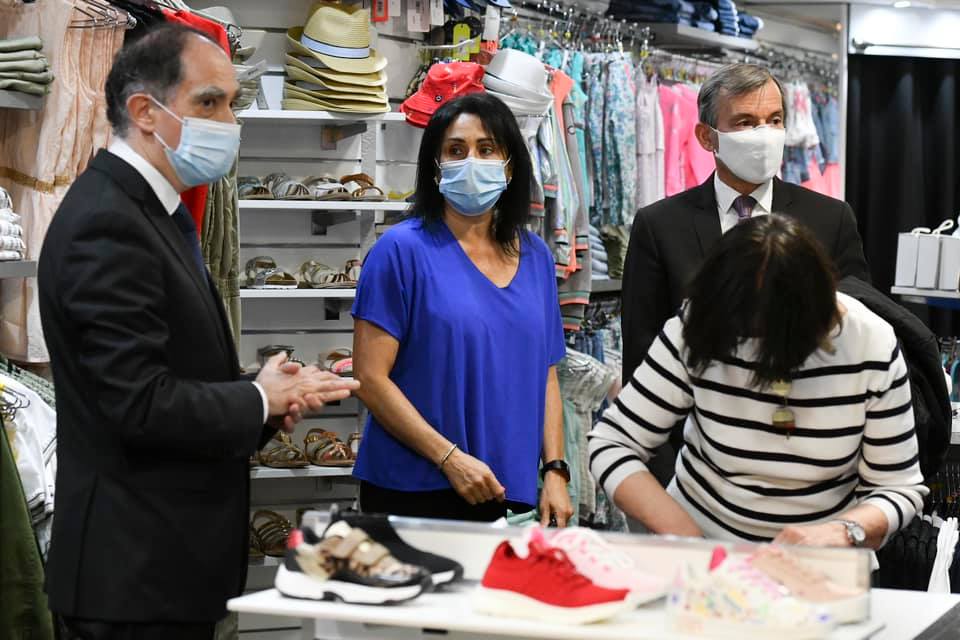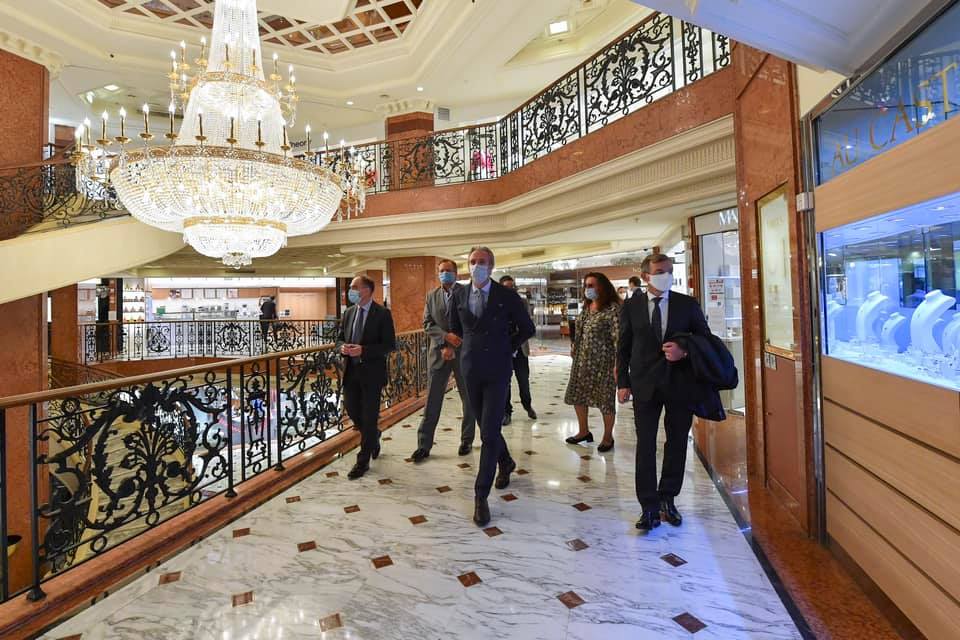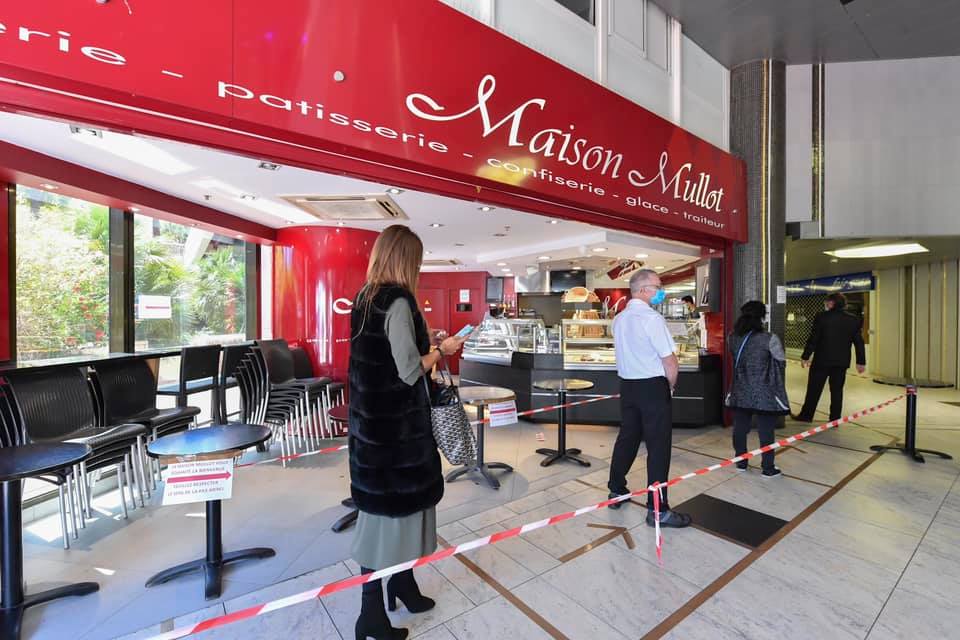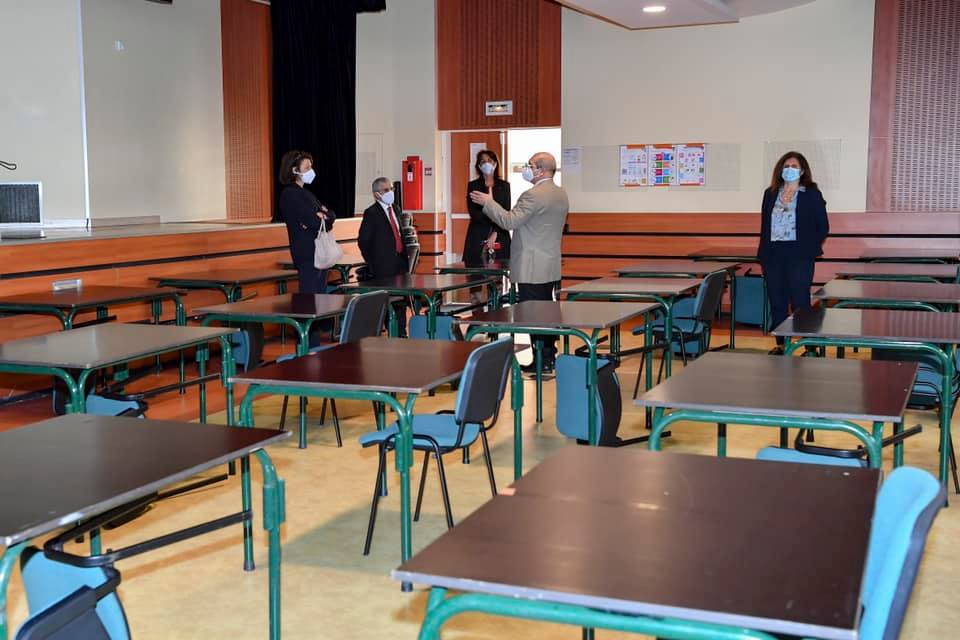How Monaco is coming back to life after lockdown

After 49 days, Monaco has begun its “gradual and cautious” lifting of lockdown, as described by Minister of State Serge Teller. Private boats are allowed to set sail again and private helicopters are allowed to take off again. Offices, shops, places of worships and restaurants, Monaco Tribune takes stock of how Monaco is slowly returning to an “almost” normal life, a week ago before France.
Encouraging statistics
The last positive case of Covid-19 in the Principality was recorded 10 days ago. A total of 95 people were infected with the virus. Amongst them, 82 people have recovered, one person remains in intensive care at the Princess Grace Hospital Centre and four others are still being monitored by the Outpatients care centre. After monitoring 117 patients, the centre’s team will reduce its size. The centre was launched at the beginning of the health crisis to ensure follow-up with sick patients and to ease strain put on the hospital. If need be, it will be able to pick up its operations at any time.
Maximum caution over easing of lockdown
Even though Monegasques can now move freely within the territory without having to justify their movements, the police ensure that all measures are properly complied with, particularly at the border with France. Officers check that people travelling from France are in possession of their proof of business travel.
The Rock has set up the “stop-and-go” principle to allow a gradual return to economic and recreational activities with the possibility of stopping and decreeing a new lockdown in the event of a new wave of contamination.
Businesses have reopened their doors
Since the first day that lockdown was lifted, the Métropole Shopping Center has been welcoming customers, with 98% of the elegant boutiques having reopened. Minister-Counsellors Jean Castellini (Economy and Finance) and Didier Gamerdinger (Social Affairs and Health) went to meet with the shop-owners to ensure that all social distancing measures were implemented for both customers and employees.

Government of Monaco
The shopping centre’s management made a kit containing information on social distancing practices available to shop owners. Masks are also distributed free of charge to each customer at the entrances of the Métropole Shopping Center.
“The hygiene restrictions put in place are crucial for our teams and customers but unfortunately for the businesses it limits the number of people in their store,” said Dominique Gastald, President of the Association of Operators of the Metropole Shopping Centre.
As for cafés and restaurants, they will have to be patient. Restaurants are trying to organise take-away services to keep business going when they do not having the opportunity to offer service in house.

Government of Monaco
Moreover, to ensure that lockdown was not a futile exercise, it is compulsory to wear masks in certain public places such as public transport, shops, and in the Monte Carlo and La Condamine markets. A distance of 1.5 metres between each person must also be respected.
Children go back to school while parents are working remotely
Unlike France, the Principality has organised the children returning to school by age group. The government wanted to first bring back the students taking exams this year to enable them to get better results. Each Monday for the next three weeks, a group of students will return to school, beginning with those soon to go to university, ending with the oldest primary school students. Some students will not return until next school year. Each measure has been put in place to guarantee that the spread of Covid-19 will remain low.

Government of Monaco / Manuel Vitali
“We want to be very careful and avoid running any risks. It was easier to raise awareness among the older students first. This will also help students taking exams because the marks obtained at a distance during the confinement will not count in exam classes,” said Isabelle Bonnal, Director of National Education.
In addition, the National Council has adopted a new bill, voted unanimously, making working remotely during the health crisis compulsory whenever possible. Minister of State Serge Telle stressed its effectiveness, “By making people work from home in jobs which allow it is a remarkable compromise and particularly useful in the current crisis.”
A gradual and controlled resumption of legal activity
Despite lockdown, legal activity continued during the longest closure of Monaco’s courthouse Palais de Justice in history. A few employees were present on site during lockdown, but now their activities have been organised to welcome professionals and the public. Rooms are disinfected, a floor marking system is in place and the gathering of several people in the same place is limited thanks to technological advances employed by the Monaco judiciary. The Palais de Justice is expecting a return to normal hearings by the end of May.
Places of worship
Sunday Mass and bank holidays will always be celebrated remotely on social media. Places of worship are open, but masks must be worn and the number of worshippers allowed inside churches is limited.
The Prince’s Government remains positive and hopes that within a month, if all conditions are met, restaurants, cafés and other places still closed will also be able to receive the public once again.













